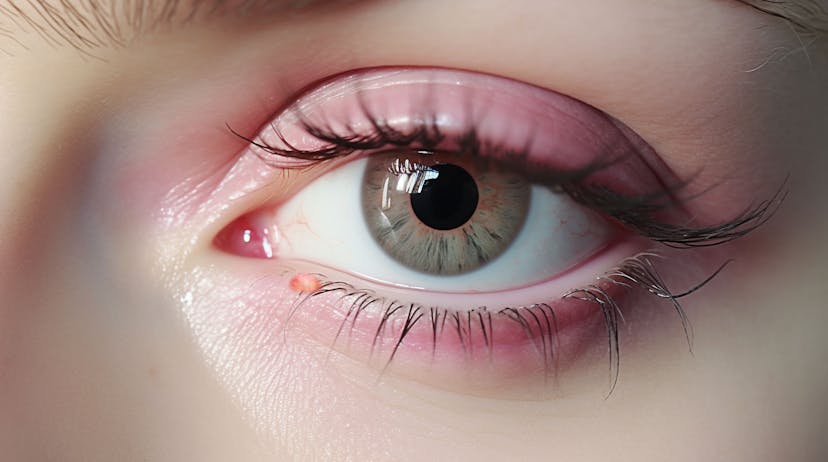
How Implantable Contact Lenses Can Fix Nearsightedness And Astigmatism
At My-iClinic, we’re dedicated to providing our patients with innovative solutions to improve their vision and quality of life. For those struggling with nearsightedness or astigmatism, traditional corrective methods like glasses or contact lenses may only offer a temporary fix. However, implantable contact lenses (ICLs) represent a significant advancement in eye care—offering a more permanent, seamless solution that enhances vision without the need for daily corrective wear. Let’s explore how implantable contact lenses can help you achieve the clear, natural vision you deserve.
Download our FREE ICL brochure here
How Implantable Contact Lenses Fix Your Eye Sight
Implantable contact lenses (ICLs) are a versatile solution for several common refractive errors, including nearsightedness, astigmatism, and farsightedness. Let’s take a closer look at how ICLs address each of these conditions and improve visual freedom and clarity.
How ICLs Can Fix Nearsightedness
Implantable contact lenses (ICLs) offer a remarkable solution for nearsightedness, also known as myopia. In a myopic eye, light focuses in front of the retina rather than directly on it, leading to blurry distance vision. ICLs work by adding a corrective lens just behind the iris, which shifts the light to focus precisely on the retina, producing clear, sharp distance vision. Unlike traditional contact lenses, ICLs remain securely in place and are designed for long-term vision correction, reducing or even eliminating the need for glasses or regular contacts. This minimally invasive procedure can transform day-to-day life for those with moderate to high levels of nearsightedness.
How ICLs Can Fix Astigmatism
Astigmatism occurs when the eye's cornea or lens has an irregular curvature, causing light to scatter or focus unevenly on the retina. This often results in blurred or distorted vision at all distances. ICLs specifically designed to correct astigmatism, known as toric ICLs, counteract this irregularity by introducing a lens with a customised curve that realigns the light entering the eye. By correcting the eye’s natural asymmetry, toric ICLs provide stable, precise vision correction, allowing those with astigmatism to see clearly without the daily hassle of glasses or contact lenses.
How ICLs Can Fix Farsightedness
Farsightedness, or hyperopia, occurs when light focuses behind the retina, making it difficult to see nearby objects clearly. In this case, implantable contact lenses are designed to adjust the focus point by directing light rays to hit the retina more accurately, improving near vision. ICLs for hyperopia offer a tailored solution, especially for those whose high prescription might make other corrective options less effective. With ICLs, patients experience clearer vision for both near and distance, enjoying a comprehensive improvement that makes everyday tasks like reading and working up close much easier.

The Implantable Contact Lens Procedure
At My-iClinic, we prioritise a safe and comfortable experience for every patient undergoing the ICL procedure. Here’s an overview of each step involved, from preparation to post-operative care, to give you a clear understanding of what to expect.
Pre-Op Eye Exam
Before undergoing the ICL procedure, a thorough eye examination is essential to determine the suitability of implantable contact lenses. During this visit, your eye care provider will measure the shape, size, and thickness of your cornea, as well as your overall eye health and prescription needs. This information is used to select a custom ICL tailored specifically for your eye, ensuring optimal vision correction. This pre-op exam is a crucial step to ensure both safety and effectiveness in the final outcome.
Administering Eye Drops
On the day of the procedure, your doctor will apply special eye drops to numb your eyes and prevent discomfort during the surgery. Additional drops may be used to dilate your pupils, allowing for easier access and visibility to the internal structures of the eye. These eye drops ensure that you feel no pain, while the eye remains open and accessible for the procedure.
Lens Insertion
Once the eye is prepared, the ICL is inserted through a tiny incision at the edge of the cornea. The lens is folded and inserted with a specialized instrument, allowing it to fit through the small opening without the need for stitches. This minimally invasive step is quick and carefully controlled, lasting only a few minutes per eye.
Lens Positioning
After insertion, the ICL is gently positioned behind the iris and in front of the natural lens, where it remains stable. The doctor may make small adjustments to ensure the lens aligns perfectly for optimal vision correction. This positioning behind the iris also means the lens is invisible to others, preserving a natural look.
Final Step
With the ICL securely positioned, the surgeon completes a final inspection of the eye and ensures that the incision is closed. The incision is typically self-sealing, so no sutures are needed. The entire procedure generally takes about 20-30 minutes per eye, after which you’ll be given time to rest and recover briefly before going home.
Post-Op Care and Check-Up
Following the procedure, it’s normal to experience mild blurriness or discomfort as your eyes adjust. Your doctor will prescribe medicated eye drops to prevent infection and reduce inflammation, along with instructions for home care. A follow-up visit is typically scheduled within 24-48 hours to check on the healing process and assess your vision. Additional check-ups in the weeks following help ensure your eyes are recovering well and your vision is stable, allowing you to enjoy the full benefits of your new ICLs.

Why Choose ICL?
At My-iClinic, we use the advanced EVO Visian ICL, crafted from Collamer, a biocompatible material exclusive to STAAR Surgical. Collamer contains collagen, a naturally occurring substance in the human body, making it especially suitable for long-term eye health. This unique technology offers distinct advantages for vision correction, including UV protection, which helps shield your eyes from harmful rays. EVO Visian ICL with Collamer technology stands out as an ideal choice for safe, effective, and lasting vision improvement.


Frequently Asked Questions
1. What makes My-iClinic’s ICL procedure different from other providers?
At My-iClinic, we exclusively use the EVO Visian ICL with Collamer technology, ensuring the highest quality and compatibility with the human body. Our expert team of ophthalmologists is dedicated to personalised care, offering a seamless experience from your initial consultation to post-operative follow-ups.
2. Who is a good candidate for the ICL procedure?
Ideal candidates are generally over 21 years old with stable prescriptions and moderate to high myopia or astigmatism. At My-iClinic, we conduct an in-depth eye examination to assess each patient’s suitability, focusing on customised solutions for optimal results.
3. How safe is the ICL procedure, and what can I expect during surgery?
The EVO Visian ICL procedure is minimally invasive and designed with safety in mind. At My-iClinic, our surgeons have extensive experience with this technique, and we take extra care to ensure a comfortable experience, including comprehensive pre-op preparations and advanced numbing methods.
4. Will the ICL be visible or noticeable in my eye?
No, the ICL is positioned behind the iris, making it completely invisible to others. My-iClinic’s attention to detail ensures that the ICL fits seamlessly with your natural eye structure, providing clear vision without altering your eye’s appearance.
5. How long does the ICL last, and will it need to be replaced?
The EVO Visian ICL is designed for long-term use and can remain in place indefinitely. However, should your prescription change over time, our team at My-iClinic offers flexible options to adjust or replace the lens as needed, ensuring your vision remains optimal.
6. Does the ICL offer protection from UV rays?
Yes, EVO Visian ICL lenses include UV protection, which helps shield your eyes from harmful rays and reduces the risk of UV-related eye conditions. At My-iClinic, we believe in providing advanced, health-protective options as part of our commitment to comprehensive eye care.
7. What can I expect after the procedure, and what does My-iClinic offer for post-operative care?
Following the ICL procedure, My-iClinic provides a tailored recovery plan, including follow-up appointments to monitor your healing and vision stability. Our team is available for support every step of the way, ensuring a smooth recovery and long-lasting results.
8. Why should I choose My-iClinic for my ICL procedure?
At My-iClinic, we combine the latest EVO Visian ICL technology with a highly skilled team and a patient-centred approach. Our commitment to personalized care, advanced techniques, and long-term eye health makes us a trusted provider in vision correction, offering results that prioritize safety, comfort, and excellence.
What's It Like To Have ICL?!
Your Next Step!
Ready to take the next step toward clear, effortless vision? At My-iClinic, located in the heart of North London, our dedicated team is here to guide you through every aspect of the ICL journey. Schedule a consultation with our eye care professionals today to discuss your vision needs, explore your options, and experience the difference that personalized, expert care can make. Reach out to My-iClinic and discover how we can help you see the world with clarity and confidence.
Find out more by Speaking to our team









